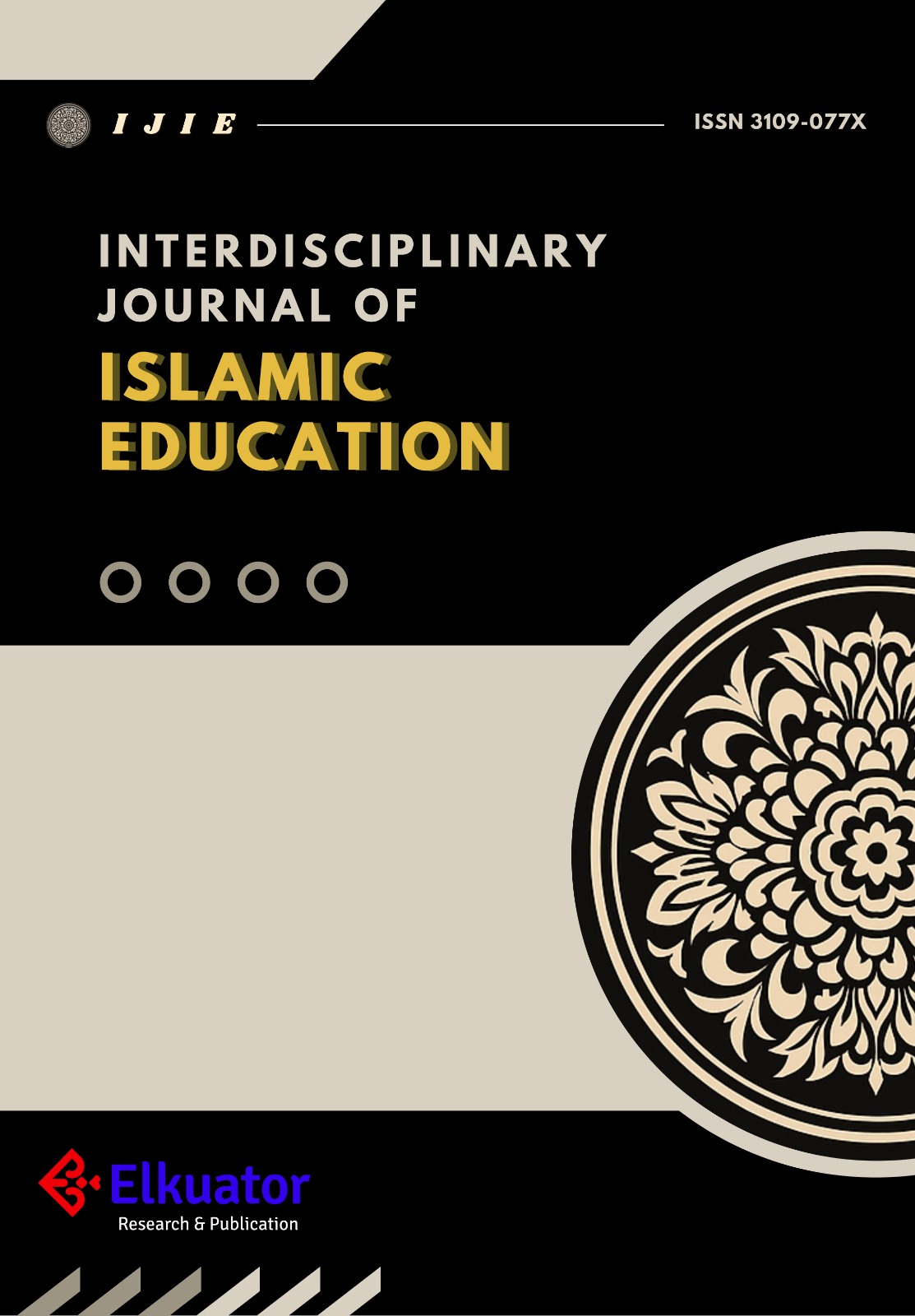Reviving Learning: Best Practice Role-Playing in Enhancing Student Engagement at MAN Bengkayang
DOI:
https://doi.org/10.24260/ijie.1.1.36Keywords:
Role-playing, Student Engagement, Classroom Action Research, Experience-Based LearningAbstract
This article discusses the implementation of the role-playing method in biology instruction at Madrasah Aliyah Negeri (MAN) Bengkayang, with a focus on improving student engagement in the complex topic of cell division. The research addresses low student motivation by exploring the potential of more interactive teaching methods. A Classroom Action Research (CAR) approach was conducted in two cycles to observe changes in student engagement and their understanding of the material. The results show that the application of role-playing significantly increased student involvement, with previously passive students becoming more active in discussions and role-playing activities. The average student grades also improved, with evaluation tests showing better results than before the method was implemented. The significance of this article lies in its contribution to innovative teaching practices in remote areas, such as MAN Bengkayang, which, despite limited facilities, can offer enjoyable and compelling learning experiences. By introducing a more dynamic method, this article highlights the importance of empowering experience-based learning strategies to enhance the quality of education, especially in overcoming the challenges faced in rural areas.
References
Brackett, M. A., Rivers, S. E., & Salovey, P. (2011). Emotional Intelligence: Implications for Personal, Social, Academic, and Workplace Success. Social and Personality Psychology Compass. https://doi.org/10.1111/j.1751-9004.2010.00334.x
Chen, J. C., & Martin, A. (2014). Role-Play Simulations as a Transformative Methodology in Environmental Education. Journal of Transformative Education. https://doi.org/10.1177/1541344614560196
da Costa, T. B. (2022). Use of Role-Playing Games in an Educational Context in Brazil. https://doi.org/10.35542/osf.io/j5xnk
Estrada, M., Monferrer, D., Rodríguez-Sánchez, A., & Moliner Tena, M. Á. (2021). Does Emotional Intelligence Influence Academic Performance? The Role of Compassion and Engagement in Education for Sustainable Development. Sustainability. https://doi.org/10.3390/su13041721
Freud, S. (2018). Ego dan id (N. Cholish, Trans.; Cetakan pertama). Tanda Baca.
Kolb, D. A. (2015). Experiential learning: Experience as the source of learning and development (Second edition). Pearson Education, Inc.
Moll, L. C. (Ed.). (1994). Vygotsky and education: Instructional implications and applications of sociohistorical psychology (Reprinted). Cambridge Univ. Press.
Ouyang, Y., Jie, P., Luo, J., Jinsheng, T., Kun, W., & Li, J. (2022). Research on the Influence of Sports Participation on School Bullying Among College Students—Chain Mediating Analysis of Emotional Intelligence and Self-Esteem. Frontiers in Psychology. https://doi.org/10.3389/fpsyg.2022.874458
Rao, D., & Stupans, I. (2012). Exploring the Potential of Role Play in Higher Education: Development of a Typology and Teacher Guidelines. Innovations in Education and Teaching International. https://doi.org/10.1080/14703297.2012.728879
Russell, C., & Shepherd, J. (2010). Online Role‐play Environments for Higher Education. British Journal of Educational Technology. https://doi.org/10.1111/j.1467-8535.2009.01048.x
Samalot‐Rivera, A., & Porretta, D. L. (2012). The Influence of Social Skills Instruction on Sport and Game Related Behaviours of Students With Emotional or Behavioural Disorders. Physical Education and Sport Pedagogy. https://doi.org/10.1080/17408989.2011.631004
Steffe, L. P., & Gale, J. E. (Eds.). (1995). Constructivism in education. Alternative Epistemologies in Education Conference, Hillsdale, N.J. Lawrence Erlbaum.
Zampetakis, L. A., Kafetsios, K., Bouranta, N., Dewett, T., & Moustakis, V. (2009). On the Relationship Between Emotional Intelligence and Entrepreneurial Attitudes and Intentions. International Journal of Entrepreneurial Behaviour & Research. https://doi.org/10.1108/13552550910995452
Downloads
Published
Issue
Section
Copyright and License
Copyright (c) 2025 Niagara, Ani Atmawati, Fitri Daniati, Kusyanto, Maimunah, Resta Tultuffia Sari (Author)

This work is licensed under a Creative Commons Attribution-NonCommercial 4.0 International License.













